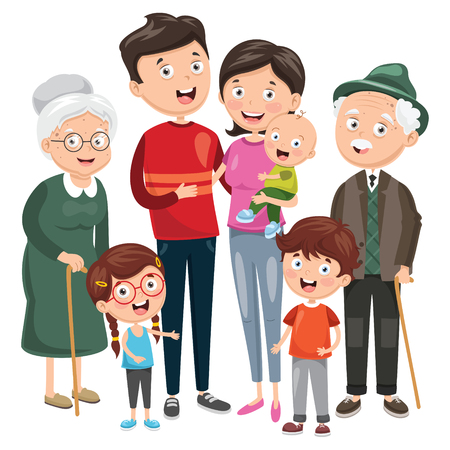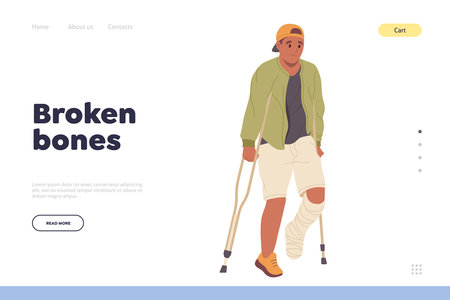Understanding the Role of a Carer in the UK
In Britain, carers hold an essential yet often underappreciated position within families and communities. A carer, in this context, is someone who provides unpaid support to a family member or friend who could not manage without their help due to age, illness, disability, or mental health needs. When it comes to supporting elderly relatives, the responsibilities can be particularly demanding, encompassing everything from daily personal care and medication management to offering emotional support and facilitating social engagement. What makes the role unique in the UK is the blend of cultural values—balancing independence with community spirit—and the legal frameworks designed to protect both carers and those they care for.
The challenges faced by carers in Britain are multifaceted. There’s often a delicate balance between promoting autonomy for elderly family members and ensuring their safety and wellbeing. Many carers grapple with feelings of isolation or overwhelm, especially as they navigate complex health and social care systems. Despite these pressures, carers are the backbone of elderly support across the country; their work enables older people to maintain dignity and independence at home for as long as possible. Recognising the vital contribution of carers is crucial—not just for policy makers but for every member of society who may one day rely on such invaluable support.
2. Assessing Individual Needs and Encouraging Independence
When supporting elderly family members, it’s vital to recognise that each person has unique needs, preferences, and abilities. Rushing in with solutions or making decisions on their behalf can inadvertently undermine their sense of autonomy and self-worth. Instead, a practical and respectful approach begins with actively listening and observing to understand what your loved one truly requires. This means having open conversations, using gentle questioning, and encouraging them to express both their aspirations and concerns about daily life.
Practical Ways to Identify Specific Needs
The first step is often a collaborative needs assessment. Sit down together—perhaps over a cuppa—and discuss what tasks they find challenging and which ones they still enjoy managing independently. Don’t just focus on physical aspects; consider emotional wellbeing, social connections, and cognitive abilities too. Below is a simple table you can use to help guide these discussions:
| Area of Life | Questions to Ask | Who Decides? |
|---|---|---|
| Mobility | Are there any difficulties moving around the house or outside? Would aids like rails or walkers help? | Together |
| Personal Care | How do you feel about bathing, dressing, and grooming? Would you like assistance or adaptations? | Elderly relative first |
| Meals & Nutrition | Do you enjoy cooking? Are there challenges with shopping or preparing food? | Together |
| Social Activities | Would you like more opportunities for outings or visits from friends? | Elderly relative first |
| Mental Stimulation | Are there hobbies or interests you’d like to pursue or revisit? | Elderly relative first |
Empowering Decision-Making and Daily Autonomy
The British value of “giving people their space” applies here: enable your loved one to make as many choices as possible about their daily routine. Small decisions—what to wear, when to have tea, which route to walk—help maintain confidence and dignity. Where safety is a concern, offer options rather than directives (“Would you prefer to take your stick today or leave it at home?”). When introducing new support measures, frame them as tools for independence rather than signs of decline.
The Role of Patience and Encouragement
This process takes patience; progress may be slow, but every step towards independence counts. Celebrate achievements, however minor, and provide reassurance during setbacks. By fostering an environment where older relatives feel heard and valued, carers can reinforce the message that ageing does not mean surrendering control—it’s about adapting together for continued quality of life.

3. Accessing Training and Resources for Carers
Supporting an elderly family member to maintain their independence can sometimes feel overwhelming, but you are not alone on this journey. Across the UK, there are a range of resources and training opportunities available to empower carers with practical skills and knowledge.
Council Services: A Local Lifeline
Your local council is often the first port of call for carer support. Many councils offer carer assessments, which identify what help you might need in your caring role and connect you with local services—anything from respite care to equipment that supports independent living. Councils frequently run workshops or information sessions focused on topics like safe mobility, medication management, or encouraging daily independence in older adults.
NHS Programmes: Health-Focused Support
The NHS recognises how vital carers are to the wellbeing of elderly people. In addition to offering advice through GPs and community nurses, many NHS trusts run specific programmes for carers—such as online courses on dementia care, falls prevention workshops, and guidance on supporting mental health in later life. These initiatives aim to equip you with confidence while reinforcing your loved one’s sense of autonomy.
Charities: Expert Guidance and Peer Support
Charities play a crucial role in supplementing statutory services. Organisations such as Age UK, Carers UK, and Independent Age offer helplines, support groups, and tailored training sessions—sometimes delivered face-to-face, sometimes online. These charities often focus on practical strategies for fostering independence: enabling choice in daily routines, encouraging social engagement, and adapting the home environment safely.
Training Tailored to Independence
It’s worth exploring specialist courses designed to nurture independence in elderly family members. For example, moving and handling training ensures you’re supporting mobility without causing injury, while communication workshops teach ways to encourage decision-making even when cognitive decline is present. Many resources also cover using assistive technology—a rapidly growing area helping older adults manage more of their daily tasks unaided.
A Real-World Perspective
Speaking from experience, connecting with these resources early made a world of difference to both my confidence and my mum’s independence after her stroke. The blend of council advice, NHS expertise, and charity-led peer sharing helped us find a rhythm that respected her choices while ensuring safety. Don’t hesitate to reach out—there’s a wealth of support waiting for you just around the corner.
4. Implementing Practical Strategies to Foster Independence
Supporting elderly family members in becoming more independent requires a mix of encouragement, practical adjustments, and patience. Drawing from both hands-on experience and honest reflection, it’s clear that the small steps we take can make a big difference in their confidence and daily autonomy. Here are some real-world techniques, grounded in UK culture and daily realities, to help your loved ones stay active and empowered.
Encouraging Participation in Daily Tasks
One of the most effective ways to build independence is to involve older relatives in meaningful everyday activities. Instead of doing things for them, try doing things with them or encouraging them to take the lead where possible. For example, preparing a traditional British cuppa together or letting them choose ingredients for a Sunday roast can spark both joy and engagement. The goal is not perfection but participation.
Adapting the Home Environment
Often, small home adaptations can make tasks safer and more manageable. Think about rearranging kitchen cupboards so essentials are within easy reach or installing grab rails in the bathroom. Below is a simple table outlining common challenges and practical solutions:
| Challenge | Practical Solution |
|---|---|
| Difficulty moving around | Install handrails along stairs and corridors |
| Struggling with meal preparation | Use lightweight kettles and non-slip mats; pre-chop veg together |
| Trouble remembering medication | Set up pill organisers and alarms on mobile phones |
Building Confidence Through Positive Reinforcement
It’s natural for older adults to feel hesitant when trying something new or regaining lost skills. Offer gentle encouragement—celebrate small wins like making a phone call independently or taking a walk to the local shop. Remember, phrases such as “Well done, Mum!” or “You did brilliantly there” go a long way in boosting morale, especially when spoken sincerely.
The Role of Community Resources
Don’t underestimate the power of community support available across the UK. Many councils offer day centres, befriending services, or gentle exercise classes specifically tailored for seniors. Encourage your loved one to join local clubs or U3A (University of the Third Age) groups; these not only reduce isolation but also foster skills and independence in a supportive setting.
Personal Reflection: Balancing Support with Space
I’ve found that striking the right balance between offering help and stepping back is key. There will be days when your relative needs more assistance and others when they surprise you with what they can achieve alone. It’s an ongoing journey—one best navigated with empathy, open communication, and trust in their abilities.
5. Building Emotional Resilience and Community Connections
Caring for an elderly family member can be both deeply rewarding and emotionally demanding. To sustain your ability to provide support, it’s essential to prioritise your own wellbeing. Remember, you cannot pour from an empty cup—looking after yourself is not selfish, but necessary for maintaining the quality of care you offer.
Prioritising Your Wellbeing
Start by setting aside small pockets of time for yourself each day, whether that’s enjoying a quiet cuppa, going for a brisk walk in the park, or simply reading a favourite book. Maintaining healthy routines—including regular meals, adequate rest, and exercise—will help you build resilience against stress and fatigue. Don’t hesitate to speak openly with friends or family about how you’re feeling; sometimes a listening ear makes all the difference.
Seeking Emotional Support
If you’re finding it tough emotionally, reaching out for professional support is a sign of strength, not weakness. Many local councils across the UK offer free counselling services or carer-specific helplines where you can talk confidentially about your worries. Charities like Carers UK and Age UK also provide guidance and emotional support tailored to carers’ unique challenges.
Connecting with Local Carer Networks
Joining a local carer support group can be invaluable. These networks offer more than just practical advice—they foster a sense of belonging and understanding among people facing similar situations. Whether you prefer meeting in person at a community centre or joining an online forum, sharing experiences and tips with others can provide comfort and useful insights. Many groups also arrange guest speakers on topics such as dementia care, managing medication, or navigating local authority resources.
Shared Experiences: A Source of Strength
Never underestimate the power of shared experience. By connecting with fellow carers, you gain access to collective wisdom that can make daily challenges feel less daunting. You’ll find that many others have faced similar hurdles—and their practical tips or simply their empathy can help lighten your load. Together, these connections form a strong support network that not only benefits you as a carer but ultimately enhances the independence and wellbeing of your elderly loved one.
6. Navigating the UK’s Care System and Knowing Your Rights
Understanding your rights and entitlements as a carer, as well as those of your elderly family member, is crucial in ensuring you both receive the support you deserve. The UK care system can seem daunting, but with the right knowledge, you can access valuable resources and assistance tailored to your needs.
Legal Entitlements for Carers and Elderly Family Members
First and foremost, it’s important to know that both carers and the people they care for are protected under UK law. The Care Act 2014 places duties on local authorities to assess not just the needs of the person requiring care, but also those of their carer. You have the right to request a carer’s assessment, which looks at how caring affects your life and what support could help you continue in your role while maintaining your own wellbeing.
Understanding Assessments
An assessment is a gateway to support; it can be requested from your local council. For elderly relatives, a needs assessment determines what kind of help they require—this might include equipment, home adaptations, or personal care. For carers, an assessment focuses on what would make caring easier—such as respite breaks or emotional support. These assessments are free and not means-tested at this stage.
Financial Support Available
The UK framework provides several financial aids. If you spend at least 35 hours per week caring for someone who receives certain disability benefits, you may be eligible for Carer’s Allowance. Your elderly family member might qualify for Attendance Allowance or Personal Independence Payment (PIP), depending on their age and circumstances. It’s wise to check eligibility for Council Tax reductions, and if you’re struggling financially, explore options like Pension Credit or Universal Credit.
Making the Most of Local Resources
Many local councils offer additional support services—such as training workshops for carers, peer support groups, or access to social activities designed to foster independence in older adults. Charities like Age UK and Carers UK provide practical guidance, legal advice, and up-to-date information on your rights.
Your Next Steps
If you’re unsure where to begin, start by contacting your local authority’s adult social care department. Request an assessment for both yourself and your loved one, gather relevant paperwork (such as medical records or benefit details), and don’t hesitate to seek out advocacy services if needed. Remember: understanding your entitlements isn’t just about ticking boxes—it’s about empowering both you and your elderly family member to live more independently and with greater dignity within the supportive framework the UK provides.


